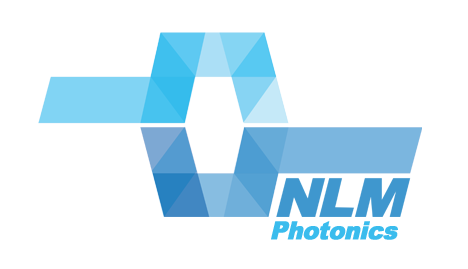Posted in Press
Seattle Startup NLM Licenses Electro-Optic Patents from University of Washington for Next-Generation Computing Breakthroughs
| UW innovation will help drive an order-of-magnitude increase in computing speed and capacity for machine learning, 5G telecommunications, blockchain and more |
| SEATTLE – March 26, 2019 – Seattle-based Nonlinear Materials Corporation (NLM) has signed an exclusive license for key electro-optic (EO) material patents from the University of Washington. The patents were licensed to NLM by CoMotion, the collaborative innovation hub at the University of Washington (UW). As described in peer-reviewed articles in Science [1] and Nature [2], the latest EO materials can be integrated into a chip in ways that enable higher-speed, lower-power optical computing and networking. The new EO materials were developed by the research groups of Professor Larry Dalton and Professor Bruce Robinson in the Department of Chemistry at UW based on over 20 years of research at UW, both within those groups and in the 2002-2012 UW-led National Science Foundation Science and Technology Center on Materials and Devices for Information Technology Research (NSF STC-MDITR). UW researchers have collaborated with researchers at ETH Zurich, Karlsruhe Institute of Technology, KU Leuven, Purdue University, Virginia Commonwealth University, US Air Force Research Laboratory, and other institutions on testing and device integration of UW-developed EO materials. These EO materials will enable chipmakers, telecom providers, and data centers to transcend constraints in capacity, speed, and power efficiency encountered with traditional electronics-based computing. To commercialize the technology, NLM has assembled a core team of top research scientists, technology startup leaders, and strategic advisors. NLM has high-performance EO materials available today, with even higher-performance EO materials in development. “Moore’s Law is dead,” said Paul Nye, Chairman and President of NLM, who has 35 years of experience with technology startups. “We expect the marketplace to shift rapidly to optical computing over the next five years.” “The largest cloud computing providers and chip manufacturers have been actively seeking a scalable, market-ready approach to optical computing,” said Gerard Zytnicki, Chief Executive Officer of NLM, a Microsoft veteran with 30 years of technology experience. “These breakthrough electro-optic materials from University of Washington make optical computing a reality.” Key industries for optical computing include semiconductors, telecom, cloud computing, healthcare, military, and aerospace. Initial adoption is expected in Internet trunk networks, datacenter network hardware, and EO interconnections embedded onto CMOS chips. These innovations will establish the foundation for an order-of-magnitude increase in computing speed and capacity. “Every decade or so, we’ve come to expect tenfold or better improvements in computing capacity,” said Lewis E. Johnson, Ph.D., Chief Scientific Officer of NLM and a Research Scientist at the University of Washington Department of Chemistry. “These advances have driven the development of the personal computer, Internet, smartphones and other revolutions in information technology. Breakthroughs in machine learning, 5G telecommunications, blockchain, and other fields will require an exponential increase in power-efficient computing and networking capacity.” “CoMotion is dedicated to expanding the economic and societal impact of the UW community,” said Forest Bohrer, Senior Technology Manager, Engineering, at CoMotion. “We are excited about NLM’s practical approach to accelerating the adoption of EO materials, and we are thrilled to have such a talented and visionary team working to improve society’s ability to benefit from technological advances throughout the computing-powered economy.” “We are grateful to CoMotion for providing their expertise, guidance, and advice throughout the journey,” said Gerard Zytnicki, CEO of NLM. “The benefits of optical computing will transform society in so many positive ways, and with this announcement, CoMotion further demonstrates its instrumental role in fostering productive collaboration between UW and the broader marketplace.” [1] Ayata et al., High-speed plasmonic modulator in a single metal layer. Science (2017). https://science.sciencemag.org/content/358/6363/630 [2] Haffner et al., Low-loss plasmon-assisted electro-optic modulator. Nature (2018). https://www.ncbi.nlm.nih.gov/pubmed/29695845 About Nonlinear Materials Corporation (NLM) Nonlinear Materials Corporation (NLM) sells proprietary electro-optic materials and licenses production methods to cloud computing providers, semiconductor companies, and telecom equipment manufacturers. With exclusive patents licensed from the University of Washington, NLM materials enable the optical future with high-speed, energy-efficient, low-cost, secure computing using “fiber- optic networks on a chip.” NLM is an early-stage startup based on Seattle. About the University of Washington and CoMotion Recently ranked by Reuters as the #1 most innovative public university in the world, the University of Washington (UW) is a leading recipient of federal funding research, producing innovations that have the power to change the world. By developing and connecting to local and global innovation ecosystems, CoMotion helps innovators achieve the greatest impact from their ideas and discoveries. Find more information at https://comotion.uw.edu Media Contacts Email: [email protected] Keywords: Optical computing, electro-optic materials, chipmakers, semiconductors, telecom, data centers, artificial intelligence, blockchain, quantum computing, 5G Internet, bio-sensors, Nonlinear Materials Corporation, NLM, University of Washington, CoMotion, Seattle startup |


